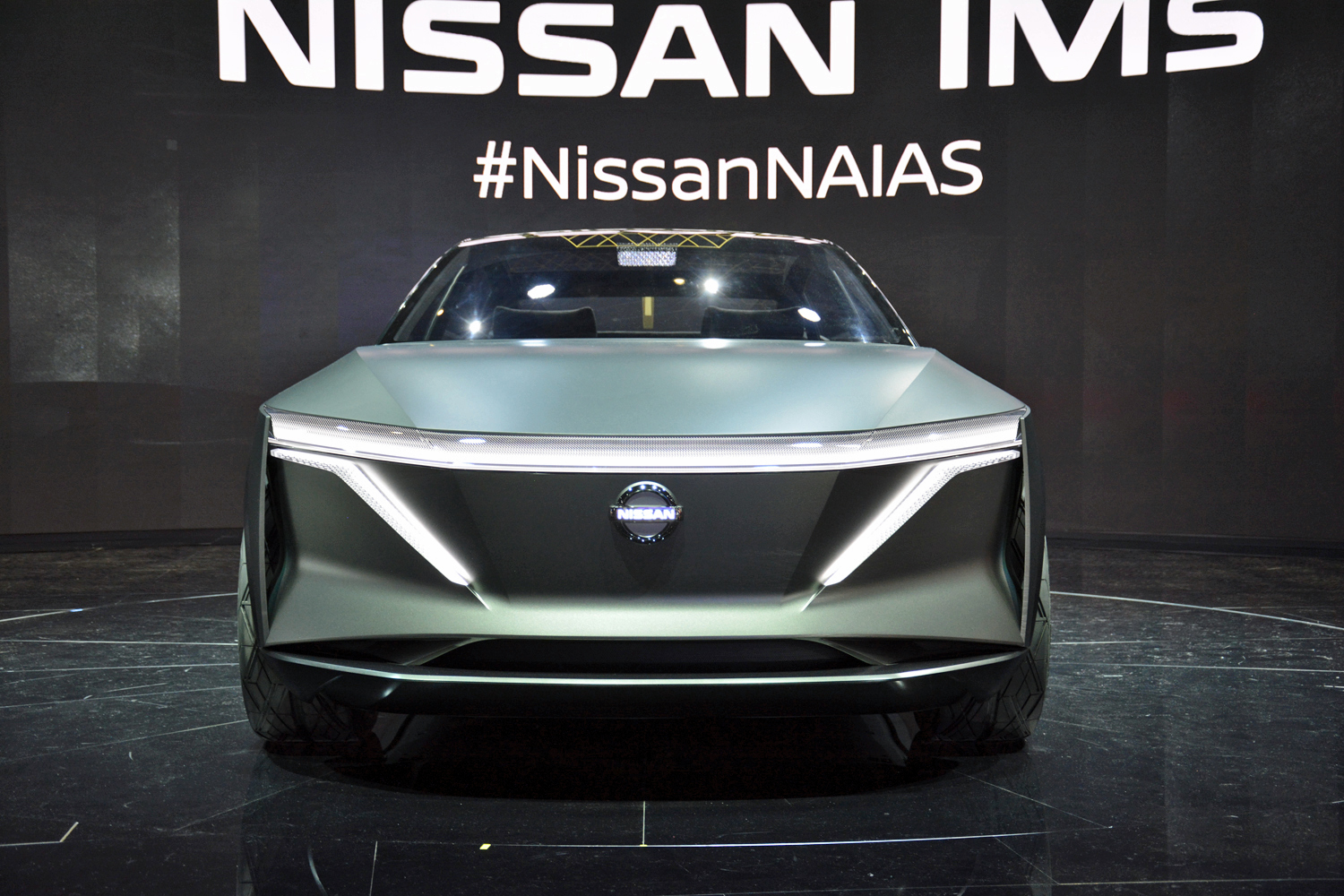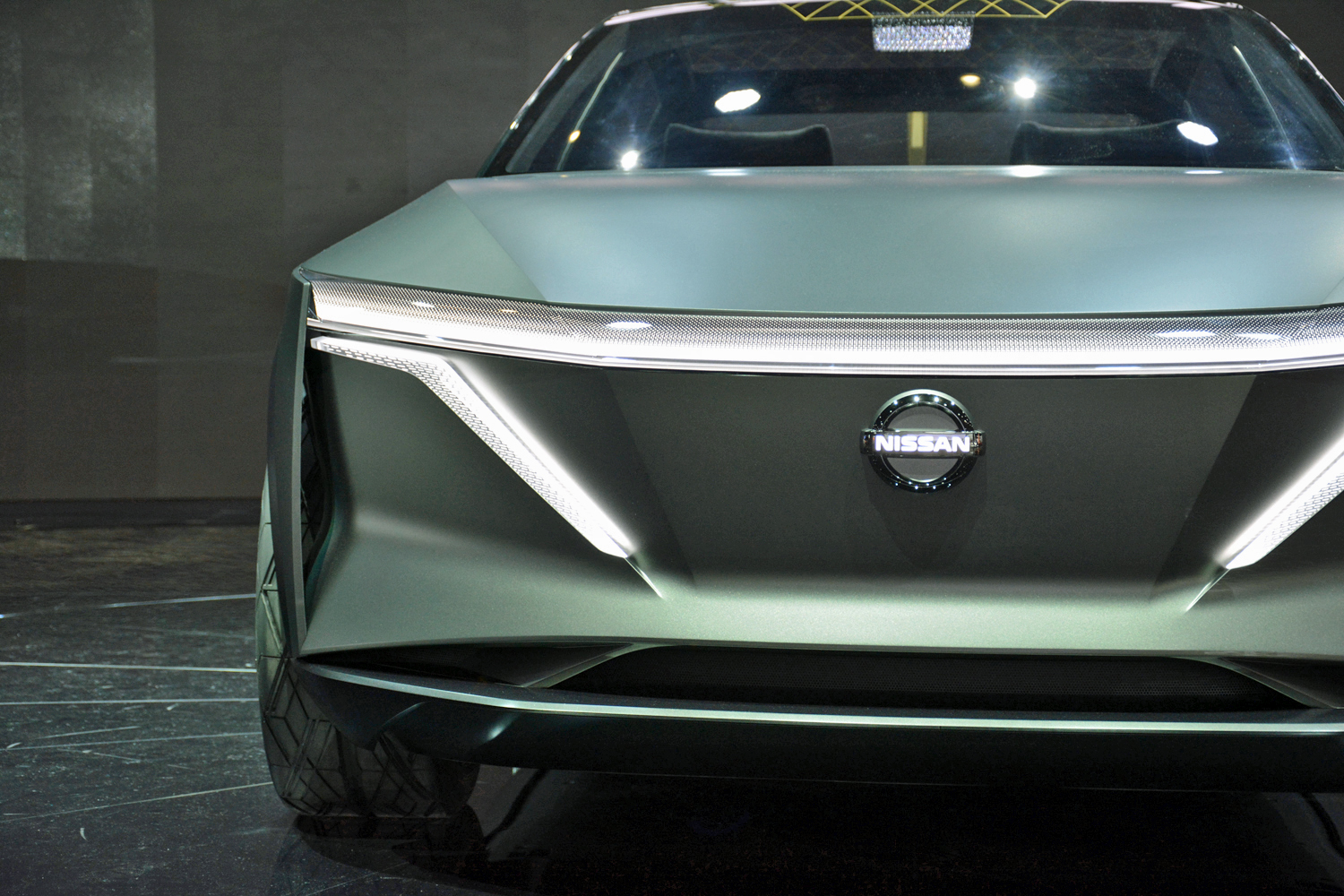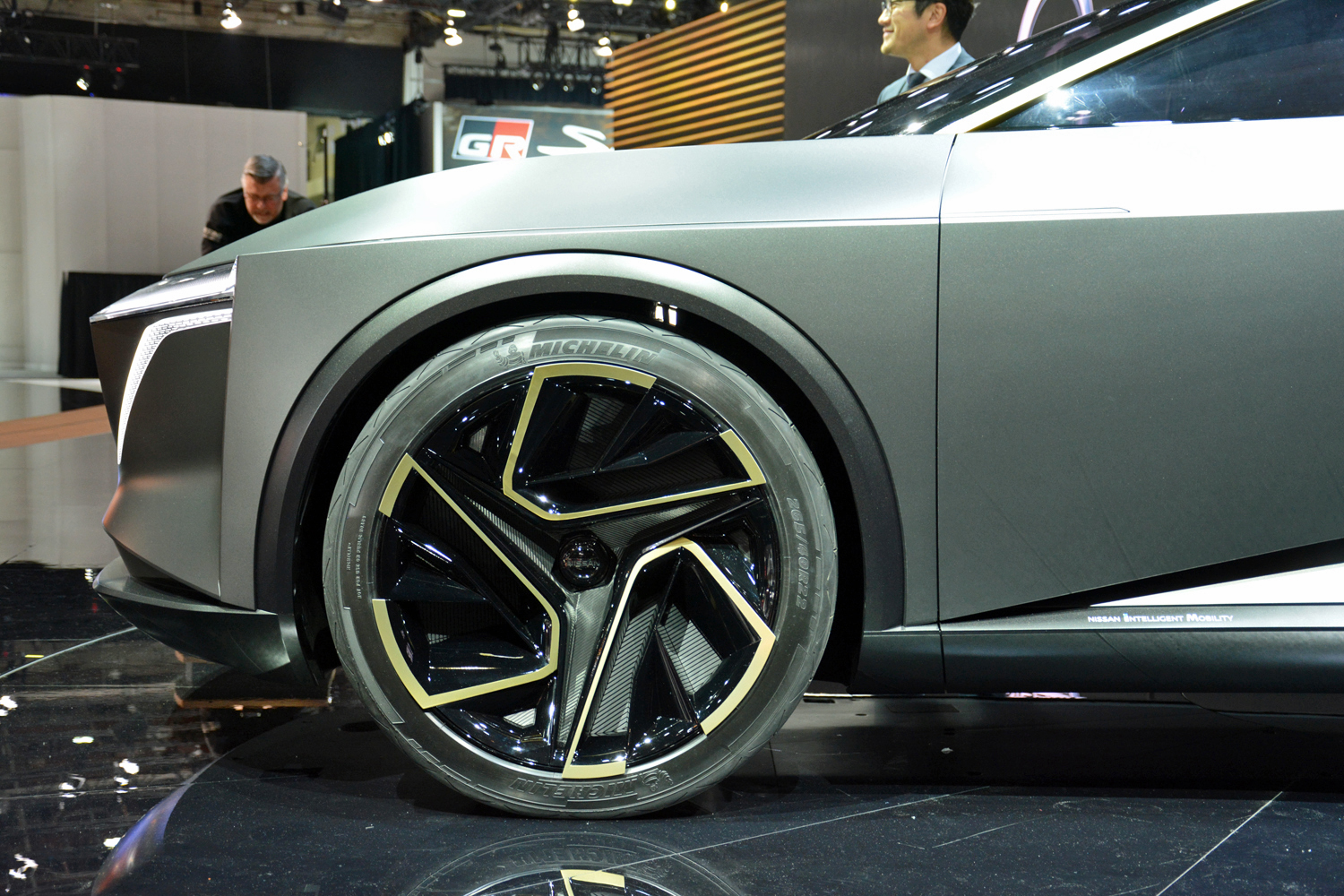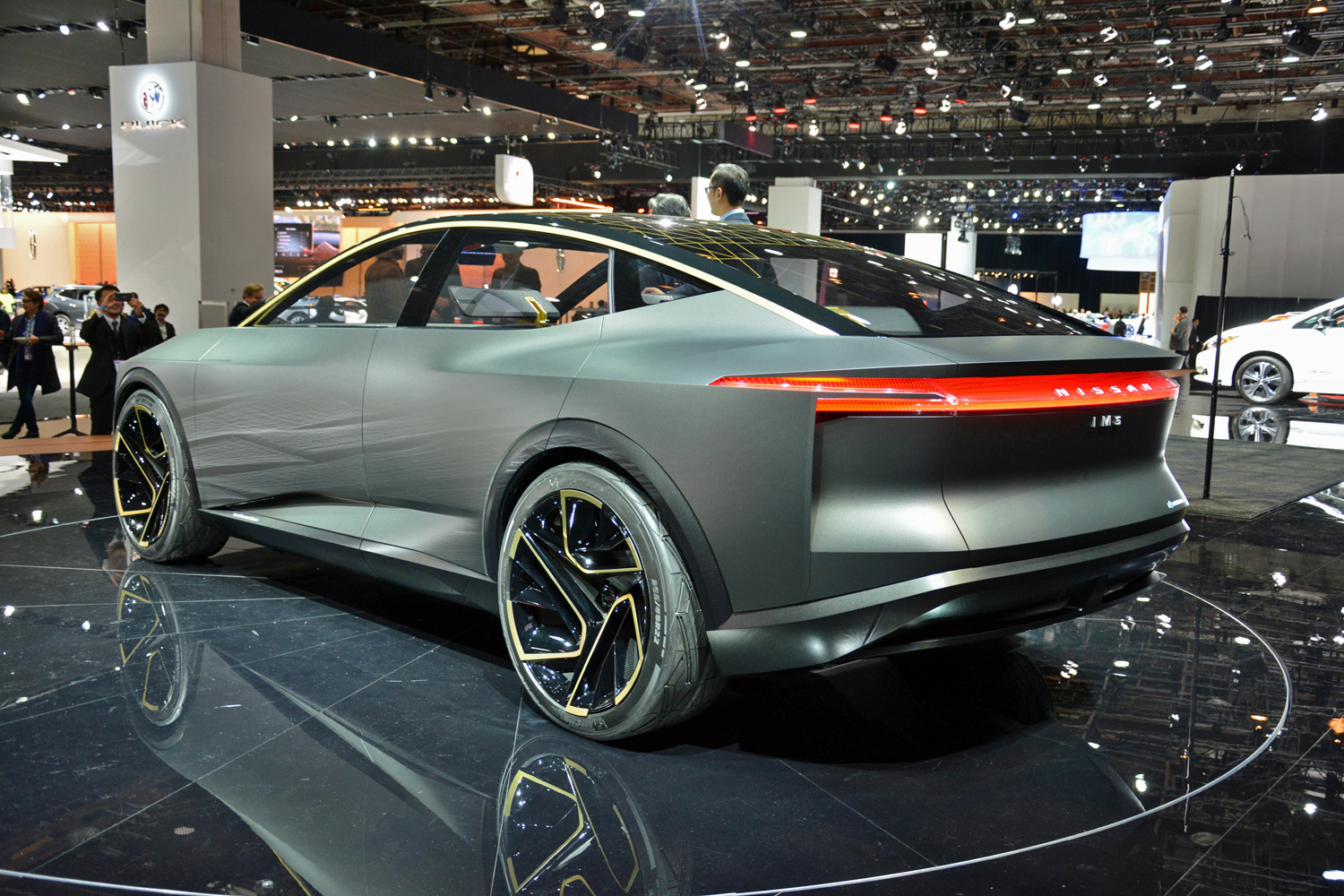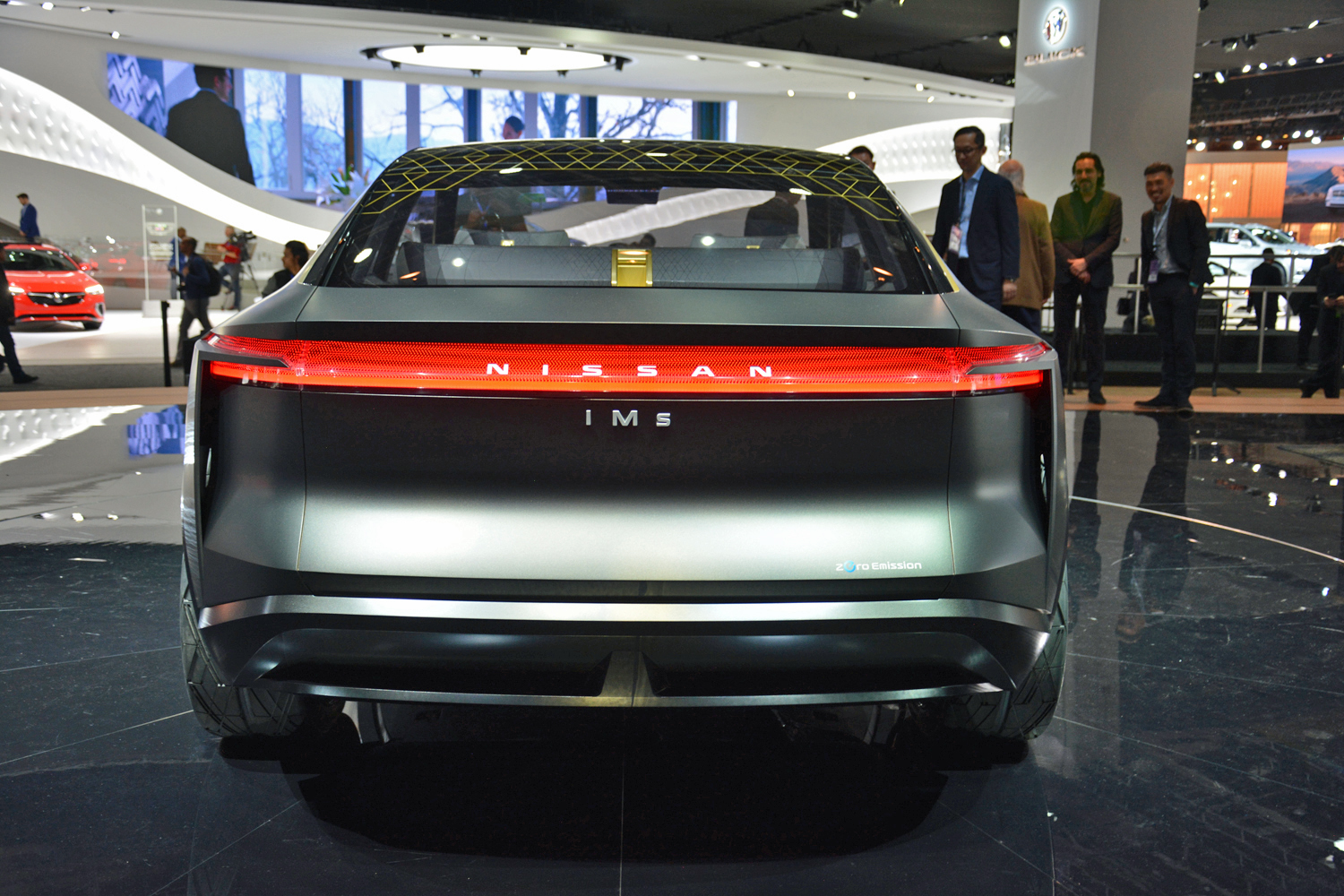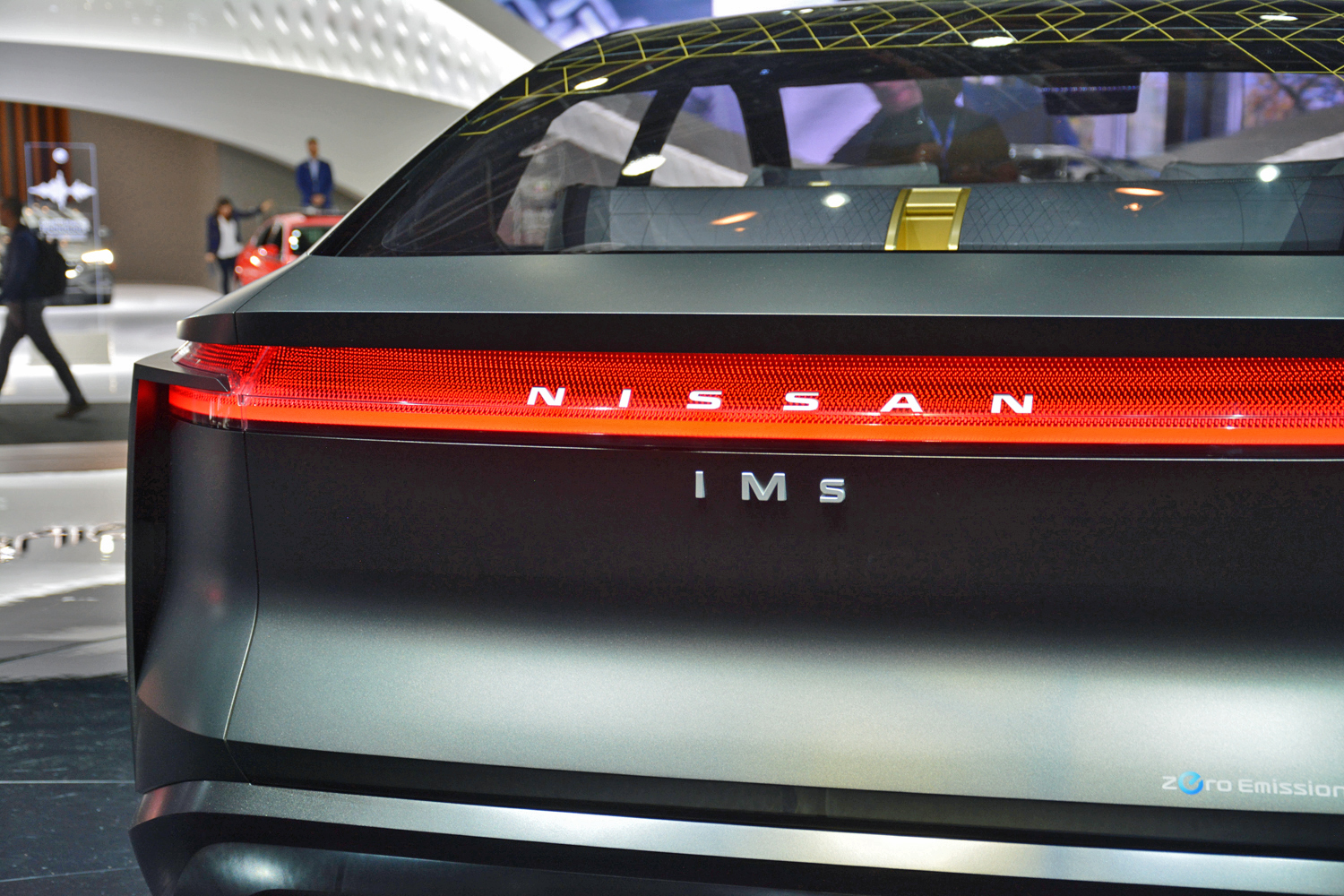The Nissan Leaf was a pioneering electric car, but the design of the current-generation model appears a bit conservative compared to rival automakers’ electric cars. Debuting at the 2019 Detroit Auto Show, the Nissan IMs concept aims to help the company push the envelope a bit further with better performance, a different approach to interior design, and autonomous-driving tech.
The IMs concept features all-wheel drive — with one electric motor powering each axle. Together, two motors produce 483 horsepower and 590 pound-feet of torque, according to Nissan. A flat 115-kilowatt-hour battery pack mounted under the floor provides a claimed 380 miles of range. The car also features an air suspension system which, along with the low center of gravity provided by the floor-mounted battery pack, allows the IMs to corner sharply and ride comfortably, according to Nissan.
The dual-motor, flat battery pack configuration is familiar from Tesla’s electric cars and those of several other automakers. As with those designs, Nissan tried to use the configuration to maximize interior space. But the Japanese automaker came up with a somewhat different final product.
The IMs is a four-door sedan, with a pair of normal bucket seats upfront. But the rear bench seat can convert from a conventional three-across setup into what Nissan calls the “Premier Seat.” In this configuration, the outboard seats fold away, leaving an oversized center seat for one person. It seems well-suited for passengers who get driven around a lot, either executives with a chauffeur or working stiffs hailing an Uber.
Speaking of getting driven around, Nissan said the IMs was designed with autonomous driving in mind. In autonomous mode, the car’s headlights and taillights turn blue, and lights project continuously front to rear, in order to let pedestrians and drivers know the car is driving itself. The interior also reconfigures itself when the car switches into autonomous mode.
The Nissan IMs is just a concept car, meaning it won’t go into production, but some of its design elements may show up on future Nissan production models. Given Nissan’s plans to sell more electric cars and commercialize autonomous-driving tech, it’s possible future versions of the automaker’s Altima or Maxima sedans could look something like the IMs. Nissan’s Infiniti luxury brand is showing its own all-electric concept — the QX Inspiration — in Detroit, offering another hint at the automaker’s potential zero-emission future.
